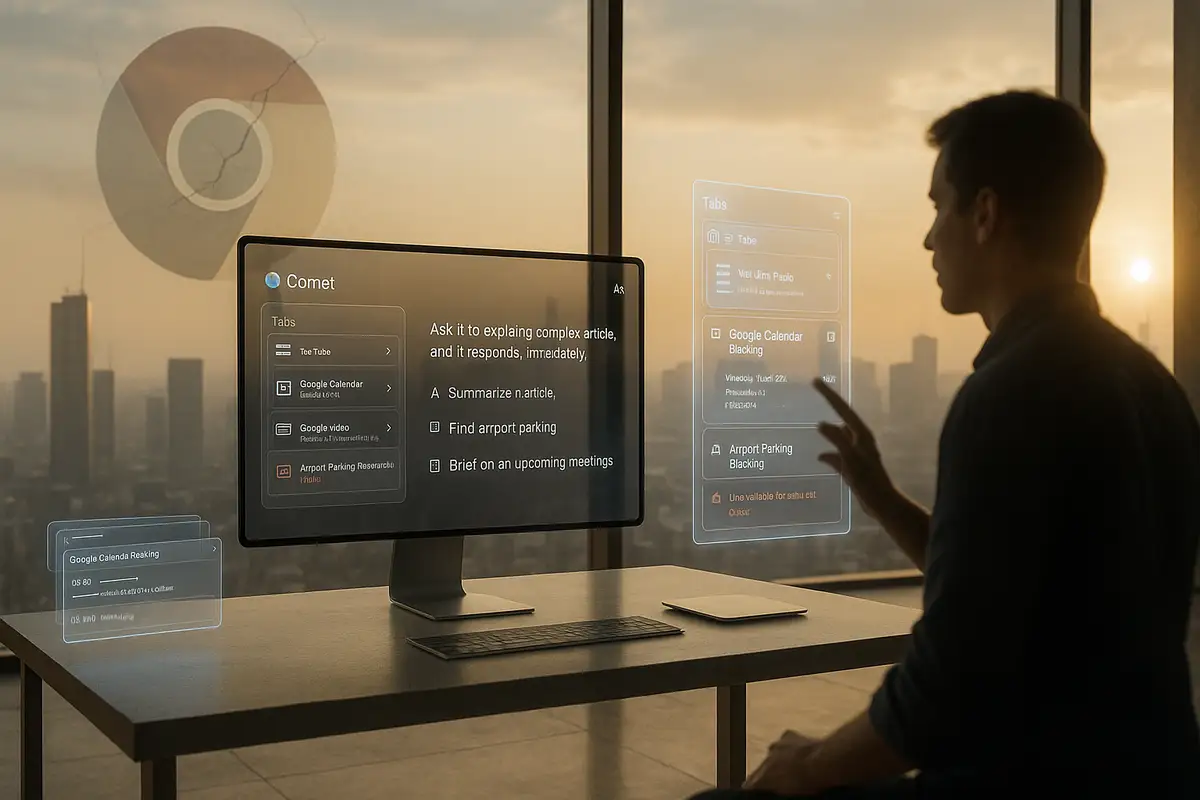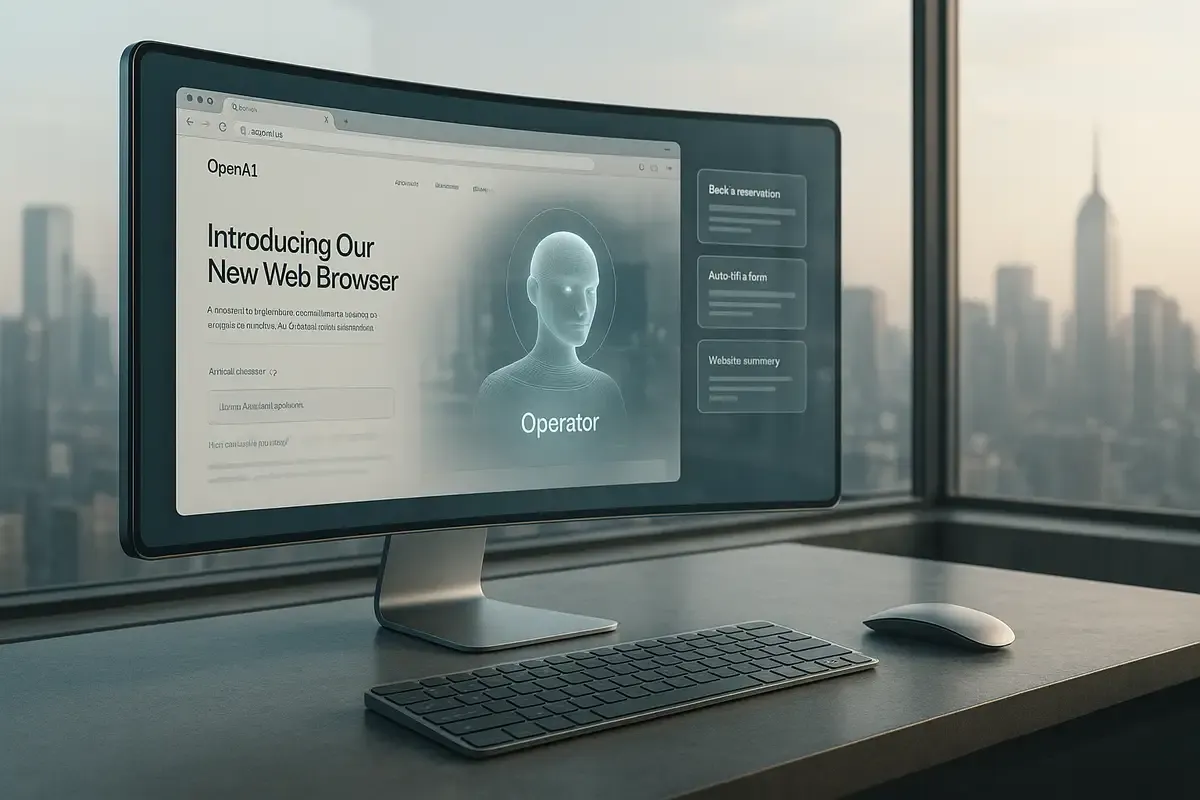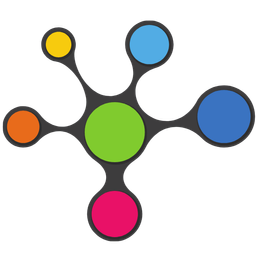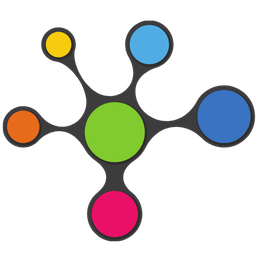💡 TL;DR - The 30 Seconds Version
🚀 OpenAI launches AI-powered browser within weeks to directly challenge Google Chrome's dominance in the web market.
📊 Chrome serves 3 billion users with 67% market share while ChatGPT has 400 million weekly active users.
💰 Google's browser powers 75% of Alphabet's $307 billion ad revenue through user data collection and targeting.
🔧 OpenAI hired two Google Chrome co-creators in 2023 and built their browser on Google's own Chromium code.
🤖 AI agents like Operator will handle booking, form-filling and other tasks directly within websites automatically.
🌍 This signals AI companies building complete tech stacks rather than just models, reshaping internet interaction.
OpenAI plans to launch an AI-powered web browser within weeks. The move puts the ChatGPT maker on a collision course with Google Chrome, which commands over two-thirds of the global browser market.
Three sources familiar with the matter told Reuters that OpenAI's browser will use artificial intelligence to change how people browse the web. The browser keeps some user interactions within a ChatGPT-like chat interface instead of sending users to traditional websites.
This represents more than a product launch. It's a direct assault on Google's data collection engine that powers its $307 billion advertising business.
The Data War Begins
Chrome feeds Google user information that makes its ad targeting profitable. The browser also routes search traffic to Google's engine by default. This system generates nearly three-quarters of Alphabet's total revenue.
OpenAI's browser threatens this setup. If ChatGPT's 400 million weekly users adopt the new browser, Google loses a key source of user data. The browser will give OpenAI direct access to web behavior patterns that Google has monopolized for years.
The timing looks strategic. The Department of Justice wants Google to sell Chrome after a federal judge ruled the company holds an illegal search monopoly. Google plans to appeal, but the legal pressure creates an opening for competitors.
Built on Google's Own Foundation
OpenAI chose an ironic approach. The browser runs on Chromium, Google's open-source browser code. Microsoft Edge and Opera also use Chromium as their foundation.
Last year, OpenAI hired two Google vice presidents who helped create Chrome. The company previously considered building a browser and expressed interest in buying Chrome if antitrust enforcers force a sale.
OpenAI decided to build rather than buy to control data collection directly. A simple browser plugin wouldn't give the company the access it needs.
AI Agents Take the Wheel
The browser will integrate OpenAI's AI agent products, including "Operator." These agents can book reservations, fill out forms, and handle other tasks directly within websites.
Current AI agents like Operator run in the cloud on customized Chrome versions. Users watch the AI navigate websites remotely. It works but feels clunky - like watching someone else drive your car from the passenger seat.
An OpenAI-controlled browser could streamline this process. The browser could switch between human and AI control seamlessly. When you need help booking a flight, hand control to an AI agent. When you want to read articles, take back control.
The AI Browser Gold Rush
OpenAI isn't alone in this race. The browser wars have returned with AI as the new weapon.
Perplexity launched its AI browser "Comet" the same day as the OpenAI news broke. The search startup charges $200 monthly for access and processes 780 million queries with 20% month-over-month growth. Comet works well for simple tasks like summarizing content but struggles with complex requests due to AI hallucinations.
The Browser Company went further. They killed their Arc browser entirely to focus on Dia, an AI that watches everything users do online. Dia remembers browsing history, learns writing styles, and accesses logged-in accounts. CEO Josh Miller believes AI will replace traditional browsers within five years.
Even established players are moving fast. Microsoft built Copilot into Edge. Opera integrated ChatGPT. Google plans to build Gemini into Chrome. The only holdouts are privacy-focused browsers like Vivaldi, which actively resist AI integration.
Beyond Traditional Browsing
Traditional browsers assume humans will click, scroll, and type. AI browsers need different designs. Why should an AI agent use a mouse cursor? Bots don't have hands.
OpenAI's browser could pioneer interfaces designed for both humans and AI. Think of it as a browser that speaks both languages - human clicks and AI commands.
This matters because AI agents will handle more web tasks over time. Shopping, research, booking, and even some social media interactions could shift to AI assistants. The browser becomes the control center for digital life.
Privacy Concerns Mount
AI browsers raise uncomfortable questions about data collection. Dia's memory feature resembles Microsoft's controversial Recall, which took screenshots of everything users did until security concerns forced changes.
These browsers need extensive permissions to work effectively. Perplexity's Comet requires access to view screens, send emails, read contacts, and modify calendars. Users face a choice: limit functionality or hand over broad access to startups.
OpenAI hasn't detailed its privacy protections. The company claims Operator won't save browsing data, but users must trust them with comprehensive web activity. The most powerful AI features demand the most personal information.
Google's Response Options
Google won't ignore this challenge. The company could integrate Gemini AI deeper into Chrome. But that creates new problems for OpenAI users who rely on Chrome today.
Google could also restrict access to its services through non-Chrome browsers. But antitrust scrutiny makes aggressive moves risky. The company already faces calls to break up its business.
More likely, Google will compete on features. Expect rapid AI integration across Google's browser and search products. The browser wars of the 2000s may return with AI as the new battleground.
Market Reality Check
OpenAI needs more than good technology to succeed. Browser switching requires breaking user habits built over decades. People resist change, especially for software they use daily.
The company also faces technical challenges. Every website must work perfectly, or users will return to Chrome. Building a browser that matches Chrome's compatibility and speed takes years of engineering work.
The competition shows mixed results so far. Arc failed to gain mainstream adoption despite good reviews. Perplexity targets power users willing to pay $200 monthly. These early AI browsers haven't cracked the mainstream market that Chrome dominates.
OpenAI has 3 million paying business users compared to Chrome's 3 billion total users. The scale difference is massive. Even capturing 5% of Chrome's users would require converting 150 million people.
The Bigger Bet
These browser launches represent a fundamental bet about computing's future. AI companies believe browsers, email clients, and productivity tools will merge into AI-powered interfaces that handle everything through conversation.
If they're right, software categories start to break down. Why have separate apps when an AI can handle browsing, email, and documents through simple commands? The browser becomes an AI control center rather than just a web viewing tool.
But the bet could backfire. Users might reject browsers that know everything about them. Privacy concerns could limit adoption of the most powerful AI features. The companies building these products could find themselves with privacy nightmares nobody wants.
Web browsing accounts for hours of daily screen time. Controlling that experience gives AI companies influence over how people consume information, shop, work, and connect. It's not just about search or ads - it's about becoming the interface between humans and the internet.
The browser also provides training data for AI models. Web interactions teach AI systems how people actually behave online. Google has used this data advantage for years. OpenAI and its competitors want their own version.
Why this matters:
• Google's advertising empire depends on Chrome's data collection - losing browser share directly threatens their core business model
• The AI browser race will test whether users actually want assistants that know everything about them, or if privacy concerns will limit adoption of the most powerful features
❓ Frequently Asked Questions
Q: When exactly will OpenAI's browser launch?
A: Within the coming weeks according to three sources familiar with the matter. OpenAI hasn't provided an official launch date and declined to comment on the Reuters report.
Q: How much will OpenAI's browser cost?
A: OpenAI hasn't announced pricing details. The company currently charges $20/month for ChatGPT Plus and has 3 million paying business users, suggesting they may offer both free and premium versions.
Q: Why build a whole browser instead of just a Chrome extension?
A: Control over data collection. OpenAI wants direct access to user web behavior rather than working through Google's platform. A browser gives them more control than a simple plugin could provide.
Q: Will Google services like Gmail and YouTube work on OpenAI's browser?
A: Yes, since it's built on Chromium (Google's open-source browser code), it should support all websites that work on Chrome, Edge, and Opera. OpenAI needs full compatibility to compete effectively.
Q: How does the Operator AI agent actually work?
A: Operator runs on a customized Chrome version in OpenAI's cloud. Users watch the AI navigate websites remotely - booking flights, filling forms, or browsing sites - like watching someone else drive your car.
Q: What privacy protections will the browser offer?
A: OpenAI claims they won't save browsing data or user inputs when AI agents perform tasks, but users must trust the company with their web activity since agents operate in OpenAI's cloud.
Q: How does this compare to other AI browsers like Arc or Brave?
A: OpenAI's browser integrates directly with ChatGPT's 400 million users and focuses on AI agents that perform tasks automatically. Competitors like Perplexity just launched Comet, but none have OpenAI's user base.
Q: Can OpenAI really compete with Chrome's 3 billion users?
A: It's an uphill battle. Chrome holds 67% market share while Apple's Safari has just 16%. Even capturing 5% of Chrome users would require converting 150 million people - a massive challenge for any newcomer.














